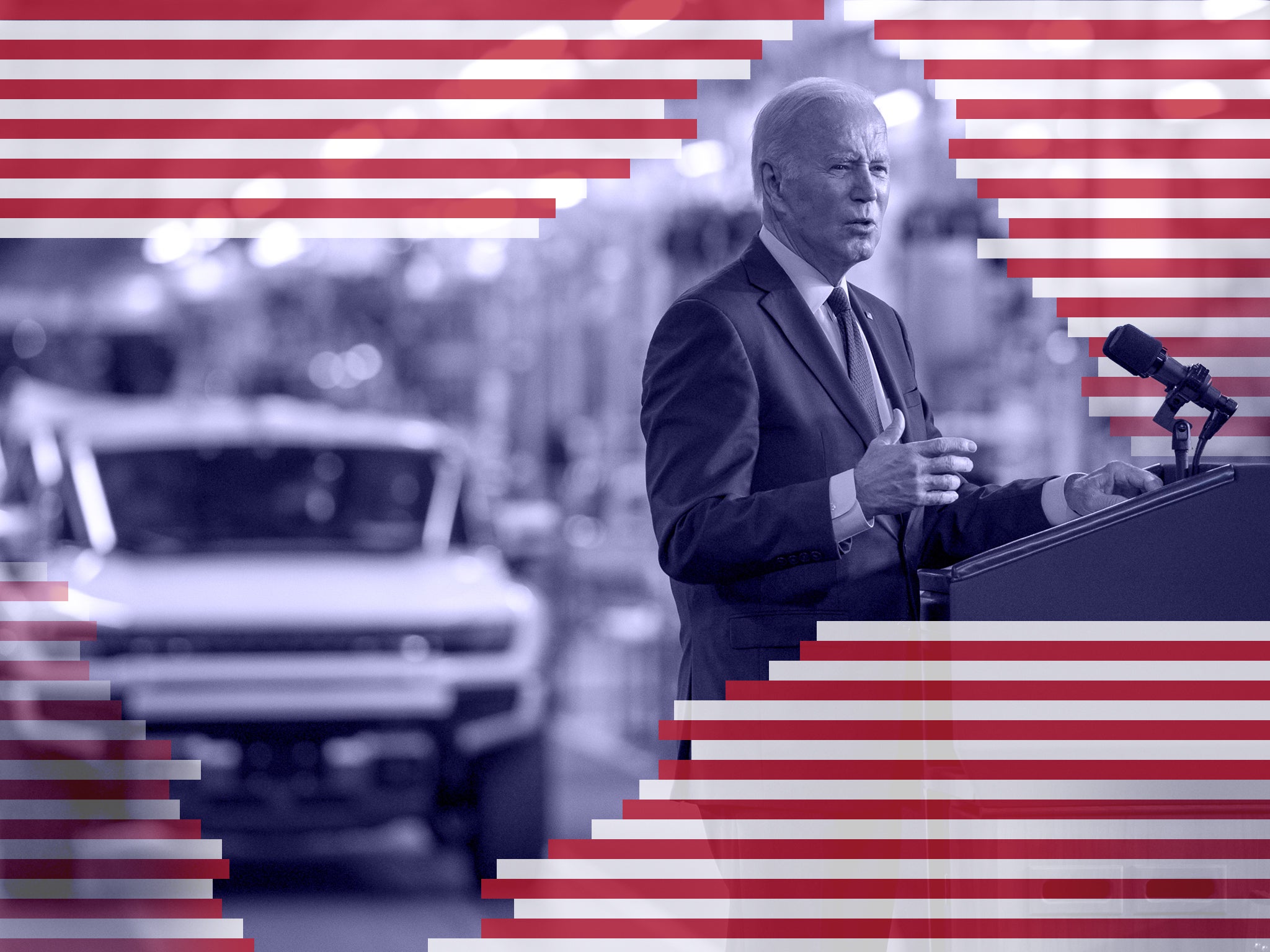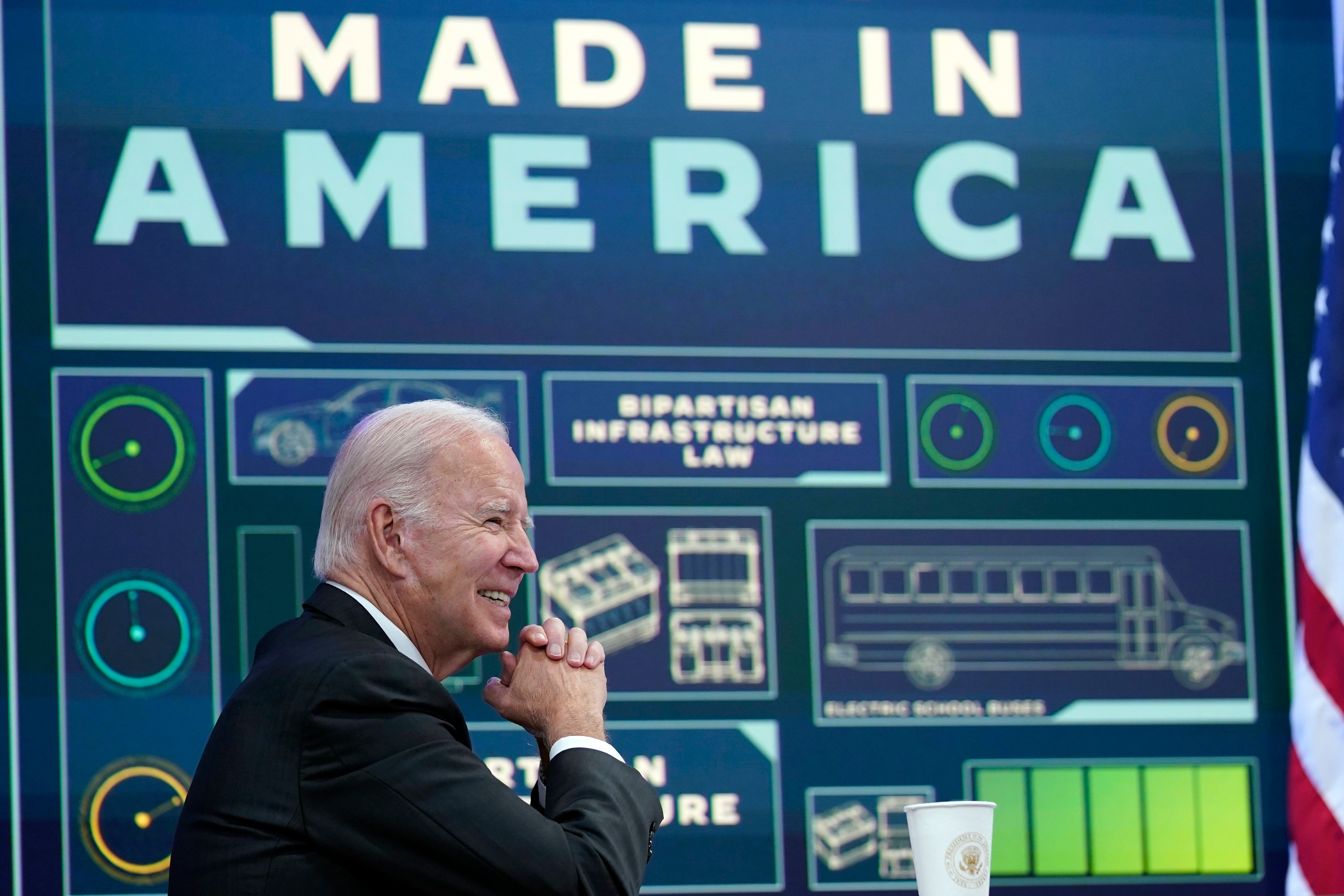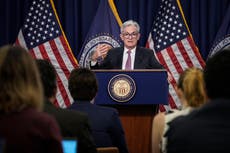Inflation rocked Biden’s second year as president. There’s more economic trouble on the horizon
High inflation was a hallmark of President Biden’s second year in office. Eric Garcia reports on why it’s such a tricky issue to overcome


For the past year, stubbornly high inflation has dogged President Joe Biden. Americans have felt the pain of high prices at the gas pump and in grocery stores. But last week, Mr Biden finally got some good news on the economy.
The Bureau of Labor Statistics reported that inflation only rose 0.1 per cent for the past month and by 6.5 per cent for the past 12 months. Mr Biden was quick to celebrate the progress.
“So, the data is clear: even though inflation is high in major economies around the world, it is coming down in America month after month, giving families some real breathing room,” he said last week. “And the big reason is falling gas prices.”
Rising prices plagued the Biden administration throughout much of 2022 and likely led to Republicans gaining a majority in the House of Representatives, alebit a slim one that has already caused chaos in Congress.
Overall, the economic picture of Mr Biden’s second year in office is a complicated one. Unemployment is still low but economic growth is slowing and prices are still stubbornly high, even if inflation is cooling. Rising prices stemmed from a series of issues, none of which is easily solvable for the White House.
Russian President Vladimir Putin’s invasion of Ukraine restricted the supply of gas across the globe, thereby driving up fuel prices. On top of that, lingering effects of the pandemic meant bottlenecked supply chains, which drove up prices further.
“If we’re focused on why inflation is as high as it is, I’d put at the very top of the list the Russian invasion of Ukraine and the surge in energy and other commodity prices. And the pandemic and the supply chains disruptions and disruptions in the labour market,” Mark Zandi, chief economist at Moody’s Analytics, told The Independent.
In response, the Federal Reserve raised interest rates seven times throughout 2022 – making it more expensive to borrow money and cooling the economy. During an address in Jackson Hole, Wyoming in August, Federal Reserve Chairman Jerome Powell warned that working families could face an undue burden from higher rates.

“While higher interest rates, slower growth and softer labour market conditions will bring down inflation, they will also bring some pain to households and businesses,” he said at the time. “These are the unfortunate costs of reducing inflation, but a failure to restore price stability would mean far greater pain.”
Douglas Holtz-Eakin, a former chief economist for George W Bush’s Council of Economic Advisers, said the Biden administration likes to take credit for the lower unemployment while not owning up to the inflation issue.
“If you own one, you own both,” he told The Independent.
Betsey Stevenson, who served on the Council of Economic Advisers during the Obama administration, added that job growth slowed in 2022 because there was a rapid recovery of job losses from the coronavirus pandemic, which meant growth would naturally be slower.

“We can’t add jobs by lowering the unemployment rate any further,” she said.
Rising inflation was one reason why Senator Joe Manchin, the recalcitrant Democrat from West Virginia, opposed President Biden’s signature Build Back Better social spending bill. However, negotiations with Senate Majority Leader Chuck Schumer led to Congress passing it and Mr Biden signing the Inflation Reduction Act in August, a slimmed down version of his favoured legislation.
But one pain point for the president – the legislation won’t cause inflation to come down in the short term.
“That will affect inflation through lower health care premiums and prescription drug costs, but that’s on the margins,” Mr Zandi said. “The Inflation Reduction Act was largely about climate change and implementing efforts to rein in C02 carbon emissions and address climate change. I don’t think it will have a material impact on inflation. Certainly not in this year or next.”
Both Mr Holtz-Eakin and Mr Zandi said that Republicans gaining the majority in the House of Representatives will likely not mean much for inflation, as it’s mostly the Federal Reserve’s responsibility to get it under control.
While Mr Biden’s 2022 was all about inflation, there’s another looming economic predicament the president must contend with this year: raising the debt ceiling.
Newly emboldened Republicans want to extract deep spending cuts in return for raising the debt limit, which covers previous spending and not future investment. Treasury Secretary Janet Yellen has predicted that the US will be unable to pay its debts as soon as this summer. Failure to do so could trigger an economic crisis at home and abroad, risking the United States’ full faith and credit.
While inflation is cooling, Americans are still feeling the pain of higher prices. And it might be a while before things settle down to a new normal, especially with many economists predicting a recession within the next year or two.
“The Fed has a very hard job, which is made even harder by the environment in which they’re operating. We have the war in Ukraine, we have uncertainty that surrounds China, its economic growth, its impact on global oil markets. And we have the tail end of the pandemic,” Mr Holtz-Eakin told The Independent. “It’s a difficult job in the best of circumstances.”
Join our commenting forum
Join thought-provoking conversations, follow other Independent readers and see their replies
Comments






Bookmark popover
Removed from bookmarks